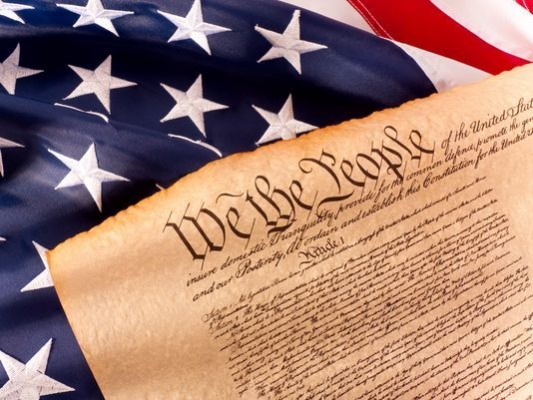Millennials Have the Wrong Idea About Freedom

Freedom of speech, a concept outlined in the Constitution, has been the subject of selective application on both sides of the political spectrum. (WASHINGTON STATE HOUSE REPUBLICANS VIA FLICKR)
October 12, 2017
Ever-growing and markedly territorial, the dominating “just” culture of our 21st century, with its supposed emphasis on social justice and polite understanding, continues to paradoxically find new and innovative ways to be singularly cruel and constantly misunderstanding of pockets of our culture that believe in old ideas and old religion. The “just” approach these people, whom they consider social stragglers, and demand that they get with the program and play the game they have set up or else face the consequences.
The game is simple: demand from religious individuals acceptance of hyper-liberal and progressive ideas. Demand that special words only are used in the public square. Demand that they participate artistically in same sex ceremonies when asked. Demand that they call others by the pronouns they prefer. If they don’t, make sure to destroy them–use every commission, every council and every policy at your disposal to severely punish their lack of participation. And it has been so: just observe the firings of people of faith from positions of power, the places at the table removed, the exorbitant fines levied to destroy livelihoods and the public shaming. All are methods formerly criticized by culture as shameful techniques of the old orthodoxy that are now being used by that same culture–the new orthodoxy–to break the soul of a people who still attempt to live in a traditional Christian way.
One of these people they have set their sights on trying to break is Mr. Jack Philips, owner of Masterpiece Bakery. Five years ago, the privately-owned bakery was visited by David Mullins and Charlie Craig, a same-sex couple, who requested a cake be made for their same-sex wedding celebration. Philips, who serves baked goods to “anybody–gay, straight, Muslim, Hindu” decided not to fulfill the specific request for a wedding cake because he did not want to make a cake for “a significant religious event that violated [his] religious faith.”
The couple filed civil rights charges against Philips with verdicts in favor the of the couple. Countersuits followed, with Philips filing freedom of speech charges against the Colorado Civil Rights Commission. The case now heads to the Supreme Court. What is at stake is our very definition of the First Amendment and how we will allow freedom in our society, particularly freedom of ideas, speech and religion. Will we narrowly interpret the right to religious freedom as a right only to be practiced by clergy, or will we defend the rights of the laity to live their faith as our Constitution set out to do?
Make no mistake: it is not up to Congress, the court or any political body, to believe they have the right to define what actions constitute “free exercise” of religion. It is the unique privilege of the individual, couched within the context of a community of religious persons, to make a claim on what qualifies as religious activity. If the state is successful in telling us what constitutes religious behavior, it will be an unprecedented intrusion on religious freedom and life in this country.
We are at a pivot point–this case has the potential to solidify and further codify the aggressive and cruel behaviors of the current dominant culture and can lead to the continuation of monumental harm to people of faith. It also presents an opportunity for our Supreme Court justices to defend religious freedom and the intent of our Constitution; it can be the first step to unraveling a failing system. If we decide correctly–if we recall that our neighbors, who have differing ideas, thoughts and actions, are not our enemies–then we will have hope for a new foundation where mutual respect, dialectic and understanding underpin the development and flourishing of people of different values.












